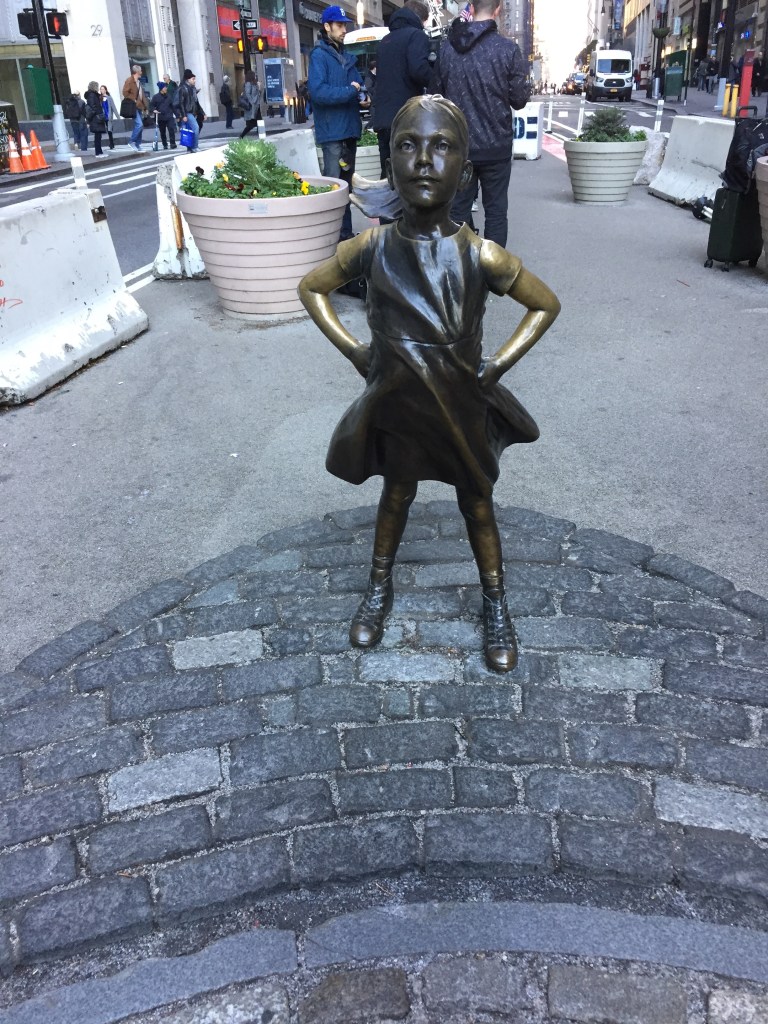
It’s 6am.
Tomorrow Is Today
But I don’t know what to do.
Is it a day of rest?
Work awaits
There is no one to hold me accountable
Except myself
And I know nothing of the future
Is today my last?
That would make last night forever.

It’s 6am.
Tomorrow Is Today
But I don’t know what to do.
Is it a day of rest?
Work awaits
There is no one to hold me accountable
Except myself
And I know nothing of the future
Is today my last?
That would make last night forever.
Check out my short short play, When Your Wing Man Is Your Mom, in the Drama Section of Molecule – a tiny lit mag – Issue 7 Fall 2022.
https://moleculetinylitmag.art.blog


When I told a friend of mine that I’d written a book called Project Chic to Paulie, he asked, “What makes you a project chic?” I answered quickly, “I’m from the projects. I grew up there.” He shook his head in acknowledgment, but suddenly all the things I used to feel when I was a young girl in boarding school rushed back.
When I left the projects to attend St. Paul’s School in New Hampshire, I was ashamed of the fact that I came from the projects. I went through four years of high school never discussing anything that happened over the summers or while I was on break. I knew people thought a certain way about people who lived in the projects, and I did not believe my family fit into those stereotypes at all, but I was still afraid of being labeled.
My brother told me that we were some of the luckiest kids in the projects because we had both of our parents. I never wanted for anything. But we lived in the Van Dyke projects in Brownsville, and it didn’t seem to matter how many nice things I had or cool places I’d been. The truth I could not avoid was that no matter what I was, I would always be a “Project Chic.”
My image of this girl was the image I believed other people had of girls who lived in the projects. She had unprotected sex and would become pregnant at a young age. She drank and maybe used drugs but hoped her parents wouldn’t find out. She cursed and had physical fights with anyone who crossed her or sometimes people she just wanted to hurt. Her parents were on welfare, and there was often no food in the house. Her older siblings had gotten into a life of crime and were possibly in jail. If she had younger siblings, then she hoped they would have a better life, but the odds were that they would not. A “Project Chic” was destined to fail. The chances of her survival and success were so small no one even considered it a possibility—no one except for the admissions department at St. Paul’s School. They believed I was “Paulie” material.
In the way that growing up in the projects makes me a “Project Chic,” going to St. Paul’s makes me a “Paulie.” My image of a “Paulie” was a girl with wealthy parents. The kind of wealth that meant she could go to a foreign country for a two-day weekend. She was probably white, blond, thin, and athletic. But most importantly “Paulies” were destined to succeed. I felt I could never be this girl as I am black, curvy, not particularly interested in sports, and my parents were certainly not wealthy. And all the while I attended St. Paul’s, I did not know that I could succeed—not until graduation day.
After graduation I realized that being a “Paulie” and being a “Project Chic” were about so much more than the stereotypes I’d created in my mind. I based my images on other people’s beliefs and not on my actual experiences. I realized that my experiences may be the exception, but that does not make me any less a “Project Chic” or any less a “Paulie.” I define the terms. The terms do not define me.
Project Chic to Paulie – Available to Purchase On Amazon

We are all fair game;
children in strollers;
police sitting in patrol cars;
elders walking down the block;
women asleep at home.
Who do you see?
Can you see me?
My life?
My worth?
Am I enough for you
to extend a kind word;
a smile;
a thought filled with respect?
I see you in me.
Your being excites me.
While all I wish
is for you to let me be.

What happens to a dream realized?
Does it fade into the background;
replaced by a longing for more?
Or does it linger in a life filled with joy?
Is it forgotten amidst a quest for survival?
Or held near to our hearts like a first love?
When our dreams become our reality
do we appreciate the life we thought we would never have?
Or do we find fault in how it’s not precisely as we had hoped?
After all, a dream turned into a reality is
a hope turned into a life.

I knew I had you when I began to think on my own
You comforted me when I could not fall asleep
You pushed me up mountains I didn’t feel equipped to climb
But I didn’t know how much I needed you until you were gone.
Those years without you filled my mind with self-doubt
I didn’t know I could bounce back from.
But bounce I did.
And you returned
Like a true love;
I knew you belonged to me.
But we must part again.
This time it is me walking away.
I know I can make it on my own now and be ok
You rest within my soul
Fueling my steps
As my new future awaits.

In The Silence
I remember the music that seeps in through the open window
I remember the voice of the son who dishonors his father
I miss the helicopter searching for the latest criminal
I miss the echo of a gunshot that misses a child
I inhale the smoke of things I never dared to smoke
I await dawn
Without the promise of another silent night.

5pm. Dark clouds held the sun hostage before the downpour, but he sat outside in the red chairs with his back arched as he savored his cigar and took long gulps of Evian. He checked his Cartier watch in-between glances of parents filling their phones with pictures of their children mimicking the fearless girl pose.
Knowing the child model was a young Hispanic girl he thought back on his own childhood growing up in Mexico. He arrived in America right at the start of middle school and quickly advanced to the top of his class. Stuyvesant for high school, Stanford for college, and Harvard for his MBA, placed him exactly where he always dreamed of being – the floor of the NY Stock Exchange.
Once he finished his cigar he took out the turkey sandwich and bag of chips he bought from the deli he ordered from every day. It was the lunch he never got to eat. He’d only taken two bites of his sandwich and eaten only a few potato chips when, he was hit by an aroma that he knew could only belong to a homeless person.
“Do you have a dollar you can spare?” It was a white man not much older than him.
“I don’t have any cash.” It was a lie. He always carried a few bucks because cash often came in handy, but he refused to give money to any of the homeless people Downtown. If he could make something of himself, he felt they should be able to as well. There were so many more opportunities to be successful in America than in Mexico. There were no reasons people in America should be homeless and begging for money unless they were drug addicts or alcoholics and he refused to support anyone’s habit.
“Could I have the rest of your potato chips? I haven’t eaten all day.” The homeless man locked eyes with the stockbroker in search of some semblance of pity.
“Neither have I.” The stockbroker did not avert his gaze. He could see the white man’s skin begin to turn a bright red as his eyes widened. He heard the sound of phlegm rising to the surface and in an instant he felt splatters of saliva on his face as the man spit on his sandwich.
“Spic!” The man turned and walked away slowly daring the stockbroker to come after him.
The stockbroker took the napkins out of his bag and wiped the splatter from his face. He wrapped up his soiled sandwich and chips and threw them in the bag as he watched the homeless man approach a young black woman and ask her for a dollar. Perhaps she saw what had happened to him. He couldn’t be sure, but she pulled out her wallet and gave him a dollar. The homeless man kept walking as if he never did what he did, and it wouldn’t matter if he did it again.
The stockbroker threw his tainted food in the trash and began his fifteen-minute walk home. As he walked he caught glimpses of his reflection in the Hermes window. His reflection began to speak to him.
Reflection – Is it worth it?
Stockbroker – What?
Reflection – The price.
Stockbroker – Of what?
Reflection – The price of life here?
Stockbroker – This is home.
Reflection – Even today?
Stockbroker – Nevertheless.
The next morning when his alarm went off at 5am he decided to hit snooze and skip his morning run. With an extra hour of sleep, he began his walk to work. He decided to walk along the pier and take in the breeze coming in from the river. Work was uneventful. The markets were flat. As soon as he stepped outside he noticed the man who had spit on him sitting on a concrete bench not too far away from the fearless girl. He stopped and stared at him from a distance but he could tell the man did not recognize him. He thought maybe he had been too harsh by not giving when he had enough to spare. He contemplated going over to him and giving him some money or buying him something to eat. Looking at the man in a new day’s light he could see the man in spite of whatever was afflicting him. They were not so different – approximately the same age, same height, same build. Only money and success separated them. He walked a few steps in the man’s direction and stopped as the homeless man got up and walked away without stopping anyone to ask for a handout. He watched him fade away into the tourists and walked to Hale & Harty to pick up a salad for dinner.